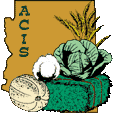
|
|
|
|

|
|||
|
|
|||
|
|
|||
|
The Federal Insecticide, Fungicide and Rodenticide Act (FIFRA), was first passed
in 1947 and required that all pesticides sold in the U.S. be registered by the EPA.
It was originally focused on protecting consumers from ineffective products and
did not regulate pesticide use. It was rewritten in 1972 and now mandates that the
EPA regulate product use to protect human health and the environment. The EPA also
has the authority to approve the use of unregistered pesticides for use to address
emergencies or special local needs. There are 3 basic types of registrations that
are defined under sections of FIFRA: 1. First party SLN where the applicant is the registrant of the product. Section 18 - Emergency Exemption - This registration allows states to approve the use of unregistered products for emergency pest conditions in a specific region for a limited time. Other options are normally not available. It is rare to obtain this type of registration for weeds that have been present for years.
Weed Scientist
Click picture to listen to Barry
To contact Barry Tickes go to:btickes@ag.arizona.edu. |
|||
| Back | |||
|
For questions or comments on any of the topics please contact Marco Pena at the Yuma Agricultural Center.
|
|||
|
Home |
Cotton | Veggies |
Forages | Grains
| Citrus |
Crop x Crop Insects | Diseases| Weeds | Pesticides | Economics | News | Weather | Research | Photos | Contacts | General Info. Copyright © 2001 University of Arizona, College of Agriculture and Life Sciences Webmaster: Al Fournier (acis@ag.arizona.edu) |
|||

